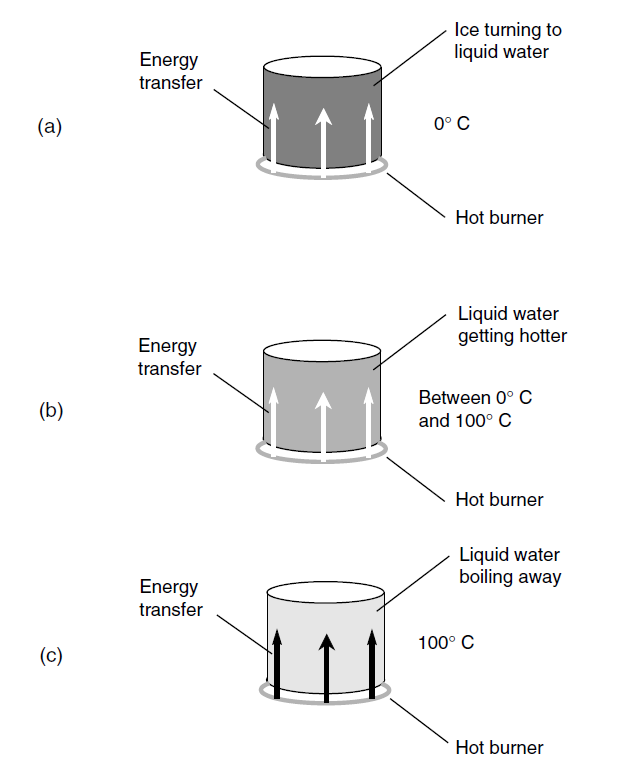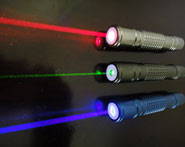


 الفيزياء الكلاسيكية
الفيزياء الكلاسيكية
 الكهربائية والمغناطيسية
الكهربائية والمغناطيسية
 علم البصريات
علم البصريات
 الفيزياء الحديثة
الفيزياء الحديثة
 النظرية النسبية
النظرية النسبية
 الفيزياء النووية
الفيزياء النووية
 فيزياء الحالة الصلبة
فيزياء الحالة الصلبة
 الليزر
الليزر
 علم الفلك
علم الفلك
 المجموعة الشمسية
المجموعة الشمسية
 الطاقة البديلة
الطاقة البديلة
 الفيزياء والعلوم الأخرى
الفيزياء والعلوم الأخرى
 مواضيع عامة في الفيزياء
مواضيع عامة في الفيزياء|
Read More
Date: 13-2-2017
Date: 9-12-2020
Date: 30-12-2016
|
THE CELSIUS (OR CENTIGRADE) SCALE
This is based on the behavior of water at the surface of the Earth under normal atmospheric pressure and at sea level. If you have a sample of ice that is extremely cold and you begin to warm it up, it will eventually start to melt as it accepts heat from the environment. The ice, and the liquid water produced as it melts, is assigned a temperature value of 0°C by convention (Fig. 1a). As you continue to pump energy into the chunk of ice, more and more of it will melt, and its temperature will stay at 0°C. It won’t get any hotter because it is not yet all liquid and doesn’t yet obey the rules for pure liquid water.
Once all the water has become liquid and as you keep pumping energy into it, its temperature will start to increase (see Fig. 1b). For awhile, the water will remain liquid and will get warmer and warmer, obeying the 1 cal/g/°C rule. Eventually, however, a point will be reached where the water starts to boil, and some of it changes to the gaseous state. The liquid water temperature, and the water vapor that comes immediately off of it, is then assigned a value of 100°C by convention (see Fig. 1c). Now there are two definitive points—the freezing point of water and the boiling point—at which there exist two specific numbers for temperature.
We can define a scheme to express temperature based on these two points. This is the Celsius temperature scale, named after the scientist who supposedly first came up with the idea. Sometimes it is called the centigrade temperature scale because one degree of temperature in this scale is equal to 1/100 of the difference between the melting temperature of pure water at sea level and the boiling temperature of pure water at sea level. The prefix multiplier centi- means “1/100,” so centigrade literally means “graduations of 1/100.”

Fig. 1. Ice melting into liquid water (a), liquid water warming up without boiling (b), and liquid water starting to boil (c).



|
|
|
|
دخلت غرفة فنسيت ماذا تريد من داخلها.. خبير يفسر الحالة
|
|
|
|
|
|
|
ثورة طبية.. ابتكار أصغر جهاز لتنظيم ضربات القلب في العالم
|
|
|
|
|
|
|
قسم شؤون المعارف ووفد من جامعة البصرة يبحثان سبل تعزيز التعاون المشترك
|
|
|